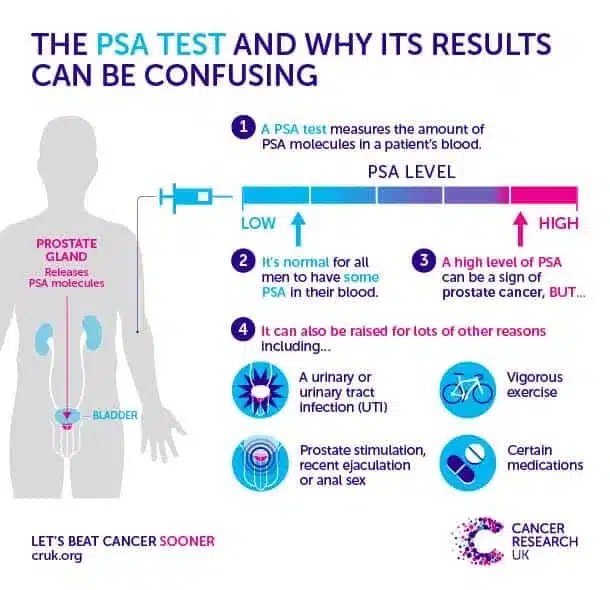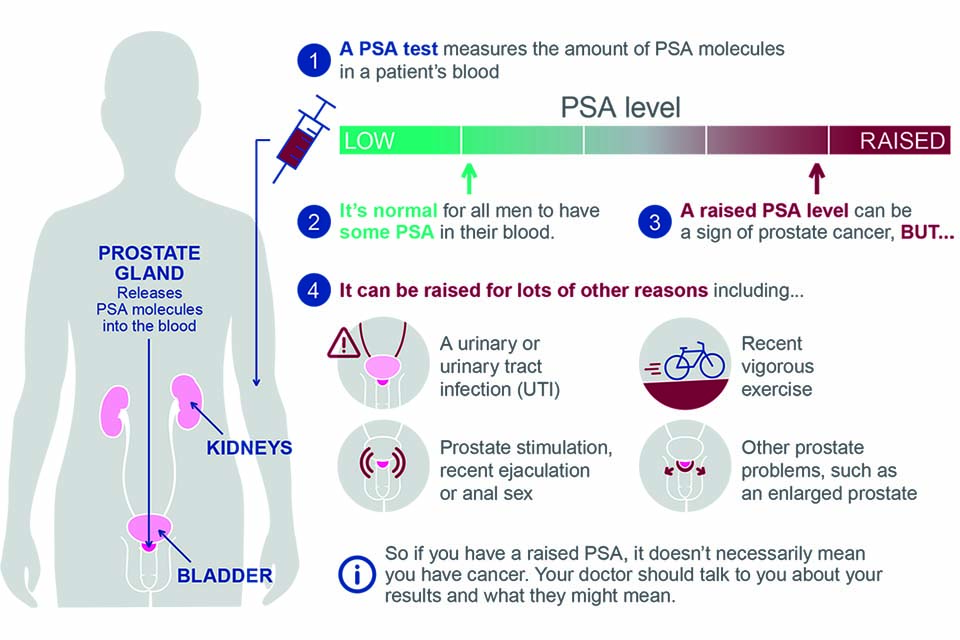How To Lower Psa Levels Quickly

Elevated Prostate-Specific Antigen (PSA) levels can be a source of anxiety for many men, often prompting concerns about prostate cancer. While PSA is a protein produced by both normal and cancerous prostate cells, its levels can fluctuate due to various factors unrelated to cancer.
This has led to a widespread interest in strategies to lower PSA levels quickly, even though medical professionals emphasize that long-term health and accurate diagnosis should be the primary focus.
Understanding PSA and Its Significance
PSA is a protein produced by the prostate gland. It's normal to have some PSA in the blood, but elevated levels can indicate a variety of conditions, including benign prostatic hyperplasia (BPH), prostatitis (inflammation of the prostate), urinary tract infections, or, in some cases, prostate cancer.
Routine PSA testing has become a common practice in men's healthcare, particularly as they age. However, the interpretation of PSA levels can be complex, and elevated results often require further investigation to determine the underlying cause.
The presence of PSA does not definitively confirm prostate cancer. Context is paramount.
Factors Influencing PSA Levels
It's crucial to understand that PSA levels can be influenced by numerous factors beyond prostate cancer. These factors include age, race, certain medications, recent ejaculation, and even vigorous exercise.
Therefore, attempting to lower PSA levels without addressing the underlying cause can be misleading and potentially delay proper diagnosis and treatment. Focus on lifestyle and medication adjustments.
According to the American Cancer Society, decisions about PSA testing should be made on an individual basis after considering the potential risks and benefits with a healthcare provider.
Strategies for Potentially Lowering PSA Levels
While not guaranteed and often not recommended without medical consultation, certain lifestyle and medical interventions are sometimes discussed in the context of lowering PSA levels. These should be approached with caution and under the guidance of a physician.
Medication Adjustments
Certain medications, such as 5-alpha reductase inhibitors (finasteride and dutasteride), are known to lower PSA levels. These medications are commonly used to treat BPH.
However, it is important to note that these medications can mask the presence of prostate cancer. It's crucial to inform your doctor about taking these drugs, as they will need to adjust the PSA level interpretation accordingly.
Lifestyle Modifications
Some studies suggest that certain lifestyle modifications may have a modest impact on PSA levels. These include maintaining a healthy weight, engaging in regular exercise, and consuming a diet rich in fruits, vegetables, and healthy fats.
Specific dietary components, such as lycopene (found in tomatoes) and selenium, have been investigated for their potential role in prostate health. The National Institutes of Health (NIH) offers extensive information on dietary supplements.
However, the evidence supporting these claims is often limited, and more research is needed. Any dietary or lifestyle changes should be discussed with a healthcare professional.
Saw Palmetto
Saw palmetto, a herbal remedy, is sometimes used to treat BPH symptoms. Some studies suggest it might have a mild effect on PSA levels.
Nevertheless, scientific evidence remains inconclusive. The FDA does not regulate herbal supplements in the same way as prescription medications.
Quality and purity can vary, so it's important to exercise caution and consult with a healthcare provider before using saw palmetto or any other herbal supplement.
Prostate Massage
While not a common practice, some anecdotal evidence suggests that prostate massage may temporarily lower PSA levels. However, there is no scientific consensus on this method, and it is not generally recommended.
Prostate massage should only be performed by a trained professional. This is generally not considered a reliable or sustainable method for managing PSA levels.
Anti-inflammatory Medications
Since prostatitis (inflammation of the prostate) can elevate PSA levels, treating the inflammation with anti-inflammatory medications can help to lower PSA. Antibiotics are often prescribed if the inflammation is caused by a bacterial infection.
The treatment for prostatitis depends on the underlying cause. It is important to consult with a healthcare provider for appropriate diagnosis and treatment.
The Importance of Medical Consultation
It is essential to emphasize that any attempt to lower PSA levels should be done under the supervision of a qualified healthcare professional. Self-treating or ignoring elevated PSA levels can have serious consequences.
A thorough medical evaluation, including a digital rectal exam and potentially a prostate biopsy, may be necessary to determine the underlying cause of elevated PSA. Early detection is key.
The goal should be to accurately diagnose and treat any underlying conditions, rather than simply trying to lower the PSA number.
Conclusion
While there are various strategies that may potentially influence PSA levels, it's crucial to prioritize accurate diagnosis and appropriate medical management. Discuss all concerns and potential interventions with a healthcare provider to determine the best course of action.
Focusing on long-term prostate health, rather than solely on lowering PSA levels quickly, is essential for ensuring the best possible outcomes.
Men experiencing elevated PSA levels should work closely with their physicians to develop a personalized management plan that addresses their individual needs and risk factors. Consider your specific situation.













:max_bytes(150000):strip_icc()/2782267_color-5baa944e4cedfd00252b40ca.png)




